In the context of globalization and the Fourth Industrial Revolution reshaping the world economy , digital technology has become a core factor determining the sustainable development and prosperity of each country.
Vietnam, with the aspiration to become a pioneering country in the digital age, took a historic step when the 15th National Assembly, at the 9th Session on June 14, 2025, passed the Law on Digital Technology Industry with 441/445 delegates in favor, reaching a rate of 92.26%.
This is not only a specialized law but also an institutional lever, opening up a 'golden opportunity' for Vietnam to build a solid legal foundation, promote domestic technology enterprises to develop strongly, integrate deeply and position Vietnam in the global technology value chain.
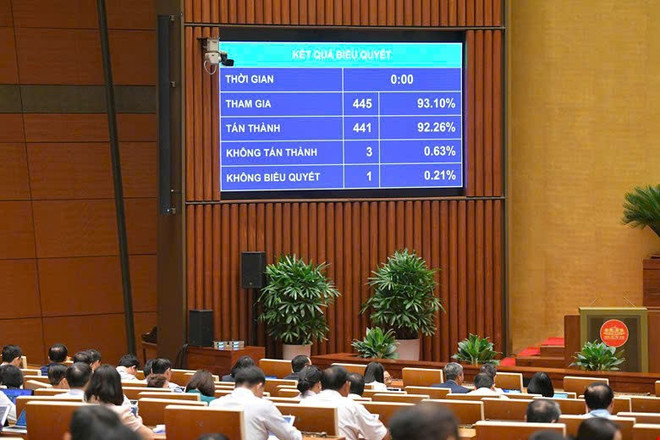
The Law on Digital Technology Industry is expected to become a compass to solve major problems of the digital technology industry, from promoting economic growth, enhancing national competitiveness, to improving the quality of life of the people. By becoming the first country in the world to promulgate a separate law on the digital technology industry, Vietnam has affirmed its pioneering position, ready to lead the global technology trend. This law not only supports digital technology businesses but also creates a foundation for Vietnam to compete fairly with the world's leading digital economies.
The Law on Digital Technology Industry institutionalizes important contents from Resolution 57-NQ/TW and Resolution 68-NQ/TW of the Politburo, including promoting the development of digital technology enterprises, especially in the private sector; building high-quality human resources; developing essential digital technology infrastructure; supporting innovative startups; and establishing a controlled testing mechanism (sandbox). These policies are designed to turn digital technology into a key driver of economic growth, with the goal of achieving a growth rate 2-3 times higher than the national GDP.
Preferential policies and breakthrough solutions
To achieve this ambitious goal, the Digital Technology Industry Law introduces a series of preferential policies and breakthrough solutions. Large investment projects in the digital technology sector enjoy corporate income tax reduction incentives for many years, financial support from the Development Investment Fund, and research and development (R&D) costs are calculated double or even triple for small and medium-sized enterprises. Administrative procedures are simplified through a mechanism of decentralization of authority to the Provincial People's Committee in establishing digital technology industrial parks, along with a "green channel" customs priority regime to facilitate businesses.

The government also prioritizes investment in essential infrastructure such as data centers, 5G networks, and cloud computing, while encouraging private enterprises to participate in developing modern infrastructure. The domestic market is expanded by promoting the use of “Make in Vietnam” technology products in state budget projects and placing orders for the development of strategic technologies such as artificial intelligence (AI), big data, and blockchain.
One of the focuses of the Digital Technology Industry Law is to increase the proportion of domestic digital technology products in the industry. Foreign-invested enterprises (FDI) are encouraged to transfer technology and cooperate with domestic enterprises through corporate income tax incentives.
Domestic startups receive 50% funding support to purchase advanced technology and develop prototypes, helping to improve the production capacity of "Make in Vietnam" products. Domestic digital technology products are given priority for use in state budget projects, ensuring a stable and sustainable output market. R&D activities receive maximum incentives, including tax exemptions and financial support, to promote creativity and innovation, helping Vietnamese products not only meet domestic needs but also be competitive in the international market.
The Law on Digital Technology Industry also aims to bring Vietnamese digital technology enterprises to the international market, increase revenue and affirm global brands.
The “Make in Vietnam” program has been standardized, implementing trade promotion activities and supporting businesses to expand foreign markets. Projects with large investment capital enjoy incentives such as corporate income tax reduction, financial support from the Development Investment Fund, and exemption from import tax on high-tech equipment. The State has built a network of digital technology industry representatives in key markets, combined with international cooperation programs, helping Vietnamese businesses gradually become multinational companies, competing with large technology corporations in the world.
Human resources are the core factor for the development of the digital technology industry, and the Digital Technology Industry Law has implemented comprehensive policies to build a pool of talent. High-quality digital technology human resources are exempt from personal income tax for the first 5 years of working in Vietnam, creating a strong financial incentive. Foreign experts are granted 5-year visas and work permit exemptions, helping to attract international human resources to transfer technology and share knowledge.

The state supports training costs through national programs, cooperation with businesses and educational institutions, focusing on advanced technology skills, project management, and innovation. Flexible human resource rotation mechanisms allow civil servants and public employees to be seconded to digital technology enterprises, retaining their salaries and positions, while experience at enterprises is highly valued, even serving as a basis for appointment to leadership positions.
Mastering core technology and strategic digital technology
To ensure technological autonomy and national security, the Digital Technology Industry Law focuses on mastering core technologies and strategic digital technologies. R&D activities enjoy the highest incentives, including corporate income tax exemption and financial support for building advanced research infrastructure.
The state commissions enterprises to develop technologies such as AI, Big Data, and Blockchain, ensuring clear direction and abundant resources. The state budget prioritizes allocation to R&D infrastructure, helping enterprises and research institutes develop core technologies, thereby enhancing Vietnam's position in the global digital technology field.
This is the first time the Digital Technology Industry Law has provided a legal framework for artificial intelligence (AI), ensuring sustainable, safe and responsible development. The principles of human-centeredness, transparency, safety and non-discrimination are clearly stipulated. AI is classified into high-risk and non-high-risk groups, with high-risk systems having to comply with strict technical requirements and close supervision. AI products must have clear identification marks to ensure transparency. The State prioritizes investment in AI research, building infrastructure such as AI data centers, and supporting businesses through tax and financial incentives to accelerate innovation.

To exploit the economic potential of digital assets, the Law on Digital Technology Industry also provides a definition and legal framework for digital assets, including crypto assets and virtual assets, classified by purpose of use and technology. The Government is assigned to issue detailed regulations, ensuring flexibility and suitability to practice. These solutions not only promote innovation but also build a transparent digital economy, contributing to enhancing national prestige in the global market.
The Digital Technology Industry Law aims to build a strong digital technology ecosystem, including supply chains and supporting industries. Large enterprises are encouraged to develop through investment incentives and strategic digital technology ordering mechanisms. Supporting enterprises receive financial support, tax reductions, and priority to participate in the digital technology supply chain. Cooperation between large and small enterprises is promoted through technology connection and transfer programs, ensuring a comprehensive development ecosystem from production to consumption.
With the goal of reaching 150,000 digital technology enterprises by 2035, the Digital Technology Industry Law will implement comprehensive support policies. Small and medium-sized enterprises will be supported with infrastructure investment costs, human resource training, and priority in bidding for public projects. The State will support investment capital for special projects and funding for technological innovation, helping enterprises improve their creativity and competitiveness. Digital technology industrial parks with attractive incentive policies create a favorable environment for startups and sustainable development./.
Source: https://www.vietnamplus.vn/luat-cong-nghiep-cong-nghe-so-dong-luc-quan-trong-cho-viet-nam-but-pha-post1044231.vnp














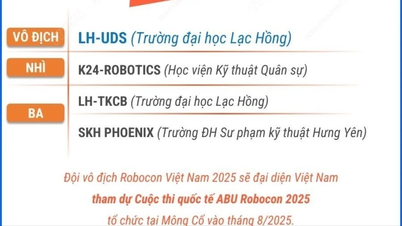









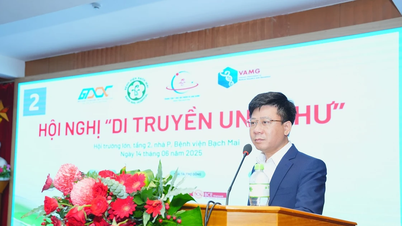
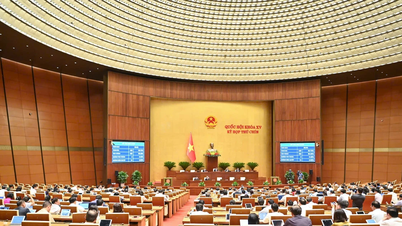
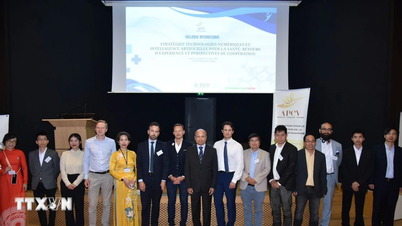
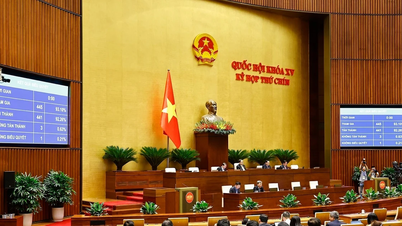

![[Photo] Prime Minister Pham Minh Chinh receives leaders of several Swedish corporations](https://vphoto.vietnam.vn/thumb/1200x675/vietnam/resource/IMAGE/2025/6/14/4437981cf1264434a949b4772f9432b6)














































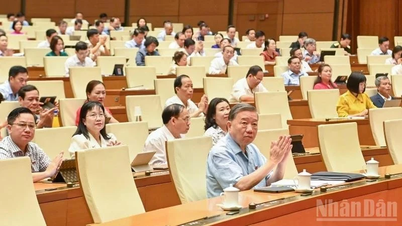















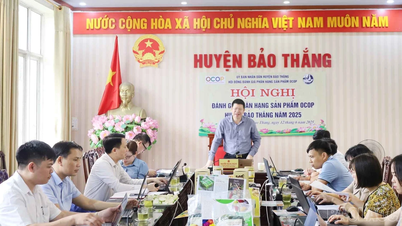






Comment (0)